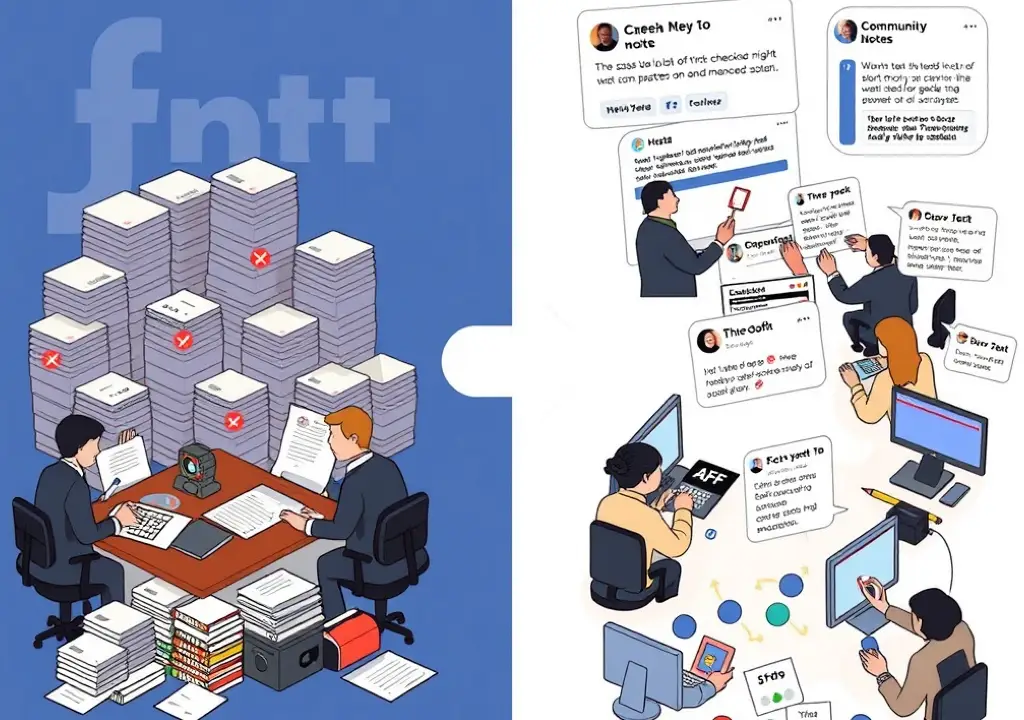Meta, the parent company of Facebook, Instagram, and Threads, is making a major shift in how it moderates content. CEO Mark Zuckerberg recently announced that Meta will phase out third-party fact-checking partnerships and instead adopt a “Community Notes” system similar to the one used by Elon Musk’s X (formerly Twitter).
Why the Change?
Zuckerberg claims the move is about restoring “free expression” and avoiding the perceived bias of external fact-checkers. In a video titled “More speech and fewer mistakes,” he argued that current moderation tools — like labels and reduced post reach — were often misused as censorship tools, especially on polarizing topics such as gender and immigration.
How Will Community Notes Work?
Though the specifics of Meta’s version are still unclear, the system is expected to mirror X’s approach. On X, Community Notes allow eligible users to collaboratively add context to potentially misleading posts. Only notes rated “helpful” by a balanced group of contributors are shown publicly.
Why Now?
The decision coincides with a shifting political landscape in the U.S., with Donald Trump returning to the presidency. Meta is also moving its content moderation teams from California to Texas, a move many experts say is politically motivated. Critics argue the platform is seeking to align more closely with conservative values and reduce scrutiny from a right-leaning administration.
Reactions and Concerns
Fact-checking organizations like PolitiFact and AFP Fact Check have pushed back, warning that this undermines journalistic integrity. Experts fear the switch will open the floodgates for misinformation, particularly around elections, public health, and climate change.
Some research shows that Community Notes can help curb misinformation, but others argue it’s too slow and inconsistent. A study by the Center for Countering Digital Hate found that only 7.4% of notes related to 2024 election misinformation were ever shown to users.
Political Overtones?
Critics, including politicians like Rep. Alexandria Ocasio-Cortez and FTC Chair Lina Khan, suggest Meta is trying to curry favor with the incoming Trump administration. This mirrors a trend in Silicon Valley where tech giants, under political pressure, rebrand speech moderation as censorship.
Who Supports It?
Supporters of free speech and decentralization welcome the shift. Elon Musk called the change “cool,” aligning it with his own vision for open discourse on X.
Conclusion:
Meta’s transition to Community Notes marks a pivotal moment in social media governance. Whether it improves transparency or becomes a tool for misinformation will depend on how the system is implemented — and how transparent Meta remains in evaluating its effectiveness.

